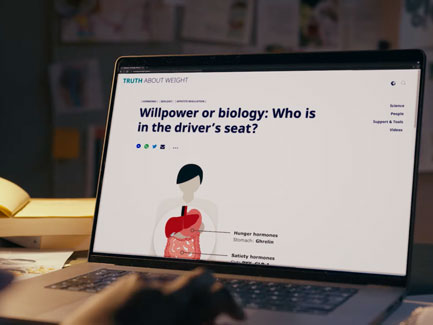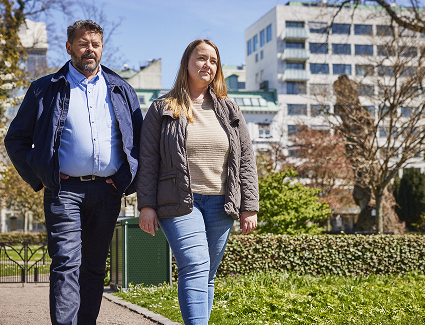Based on the above, it can be argued that social media will always do
more harm than good. However, it is not showing any signs of going
away, in fact, it is growing, scale and influence exponentially. It
should be stated that safe use of social media can have a positive
outcome, it is important to know what to look out for.
-
Finding community. There are regulated closed Facebook groups
available to join for those seeking a community, that can share
advice, scientifically recommended weight management options, and
promote realistic and sustainable health goals.
-
Following relatable and trusted influencers. When you find
yourself in an echo chamber of diet culture and toxic content, it
can be hard to make your way out. But recognising what has a
positive impact on you and what has a negative impact is important.
Try and limit time spent looking for diets or weight loss advice on
social media, and search out influencers by using body acceptance
hashtags. This can help inform your platforms of what you are
interested in and will create a new chamber of positive
content.
-
Connecting with friends for positive social
interaction. Many use social media as a way of staying
social, which became particularly important during the COVID-19
pandemic. It is important to maintain a strong support system around
you. You can read more about this here.
Social media is a double-edged sword. While it can amplify
negativity, it also offers good opportunities for connection and
support. For those navigating health challenges, such as obesity,
online communities can be a lifeline, empowering individuals and
challenging harmful stereotypes. By harnessing its potential and
mitigating its risks, social media can be a powerful tool for positive change.





